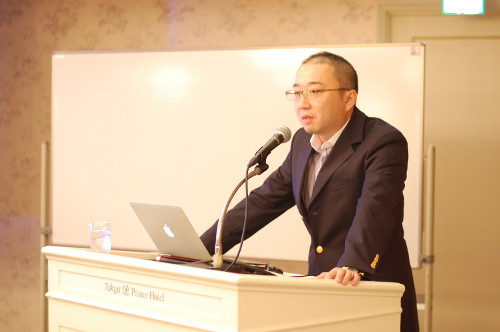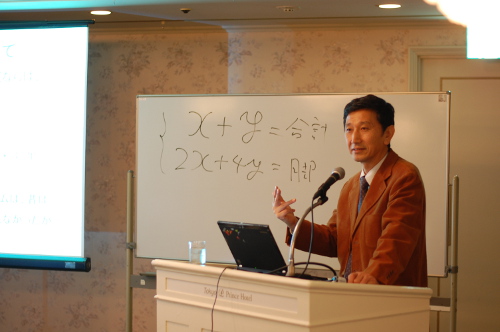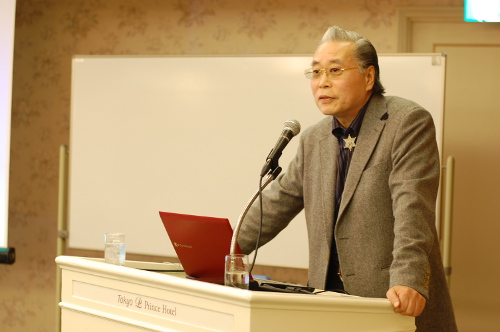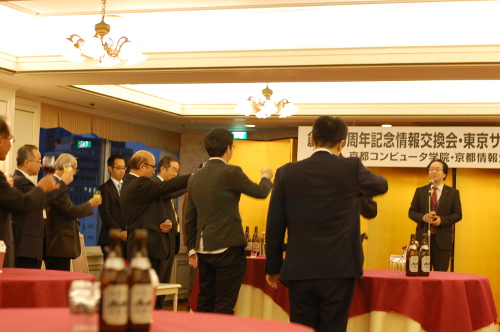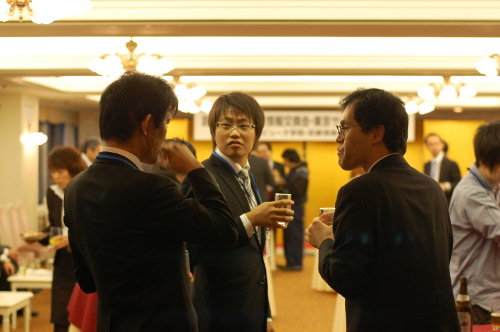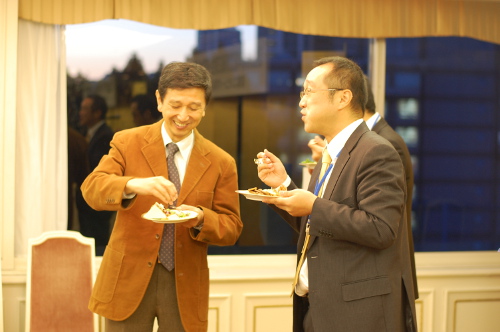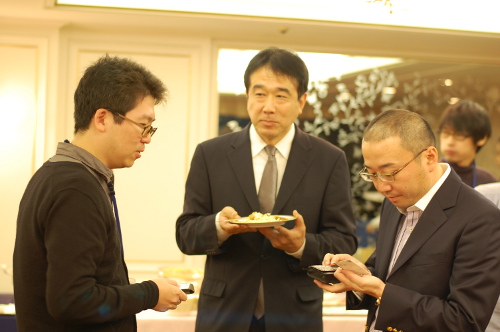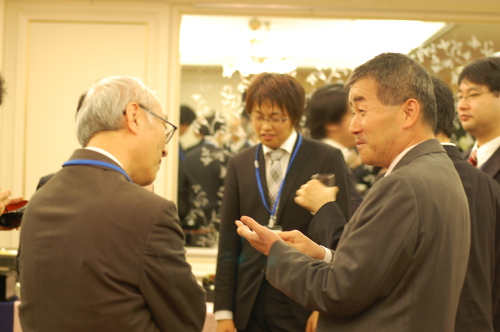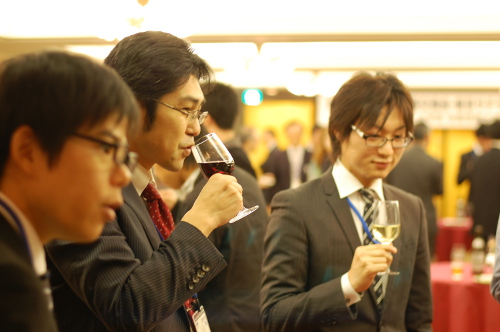Lecture at the Tokyo Prince Hotel in Minato-ku, Tokyo on December 1 in commemoration of the 50th anniversary of the kcg.edu group next year and the opening of the Tokyo Satellite in October this year by the The Kyoto College of Graduate Studies for Informatics (KCGI). A meeting was held and many participants including alumni gathered.The three lecturers talked about IT and human resource development, and the participants nodded their heads and listened attentively.
First, Prof. Masayasu Morita, KCGI (President and CEO, Hitomedia, Inc.), presented "What is needed to become an active human resource in the coming global era?He spoke about the key points to become a global human resource under the title of "The Global Talent.Professor Morita, who heads the Tokyo Satellite, said, "Many students come from all over the world to receive education at the Tokyo Satellite and contribute to society, start companies, or study while working.In addition, by attracting people from around the world, a global network of alumni can be created.That is the way we want to do it.I would like to create a good educational environment through friendly competition with the Kyoto school," he said.
Next, Mr. Takao Futagami (Toyo Technica Co., Ltd.), one of the leaders of embedded technology in Japan, organizer and technical advisor of the "ET Robocon" robot contest, in which TUAT is also involved, gave a lecture entitled "20 Years of Modeling and Embedded Development.Mr. Futagami spoke about his experience in the ET Robot Contest and other topics, saying, "In the future, Japan should not just follow those who are technologically ahead of us, but should be willing to tackle completely new challenges.
Finally, Toshio Okamoto, Dean of the Faculty of Science at the University of Electro-Communications (and Dean Professor of the Graduate School of Information Systems at the same university), gave a lecture titled "The Present and Future of e-Learning: The Importance of Nourishment and Interaction for Solid Academic Performance.Professor Okamoto said, "In the future, education in Japan should not be based on textbooks and procedural knowledge, but should produce heuristic knowledge and nurture individuals with problem-solving skills.
After the lectures, an information exchange (get-together) was held in a separate room, where speakers and participants talked together and expanded the circle of exchange.
Here are some comments on the lecture given by Prof. Morita.
- Against the policy of promoting student education from the perspective of globalization and diversity, I once again felt the future of The Kyoto College of Graduate Studies for Informatics.
- It was a very excellent lecture.I believe that the school will become a global school by taking advantage of its unique features that other universities do not have.If other universities, especially national universities, would create a curriculum like Dr. Morita's, I believe that Japan will change.
- I felt empathy with the human resource development policy, which is directly related to business and from a managerial perspective.
- I felt the power of his lecture based on his rich experience in both industry and academia.I assume that you believe that a study that cannot be applied and used is meaningless.
- The philosophical and essential issues raised were very stimulating.
- The speed at which knowledge is used is the very essence of wisdom.I felt that these words are very important in the seminars I have recently attended and in my own work, so I really agreed with them.I am very interested to see how the Tokyo Satellite will expand in the future.
- I agree with the point that it is necessary not only to have knowledge of technology, but also to know business and to have wisdom to connect business and knowledge.I am currently listening to lectures at other graduate schools and would like to consider Tokyo Satellite.
